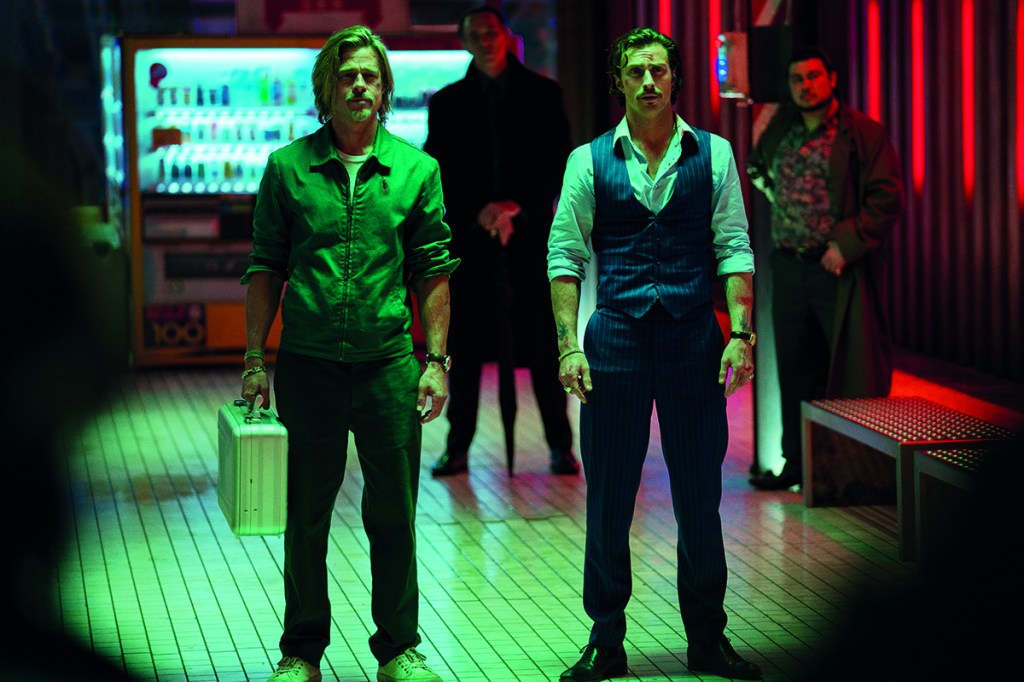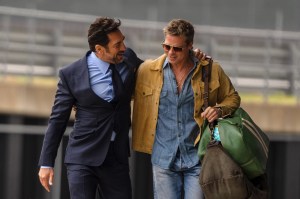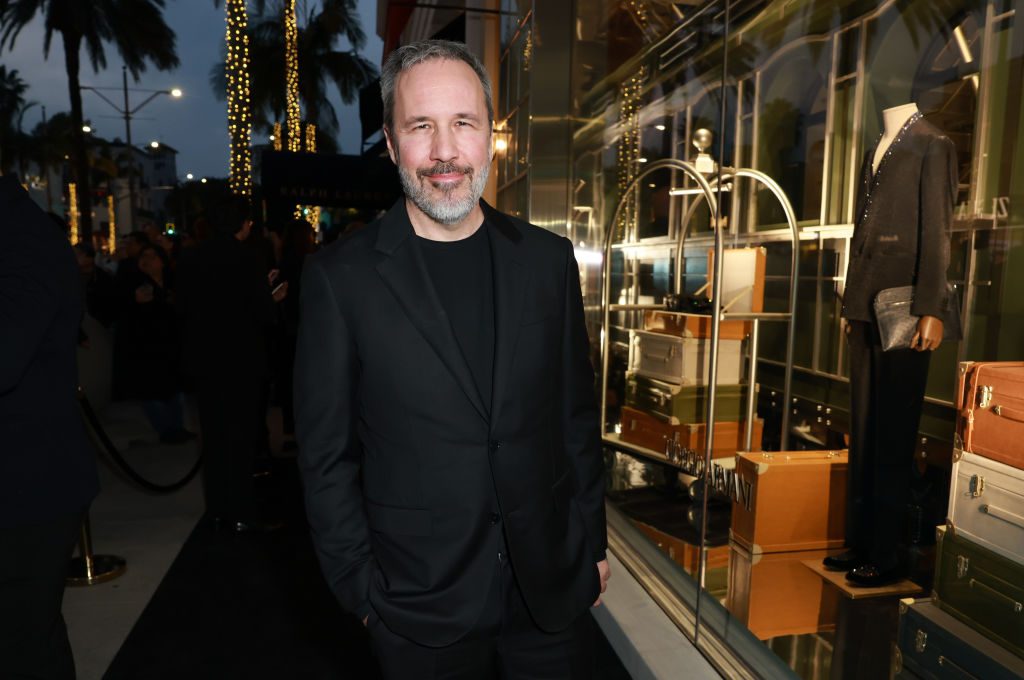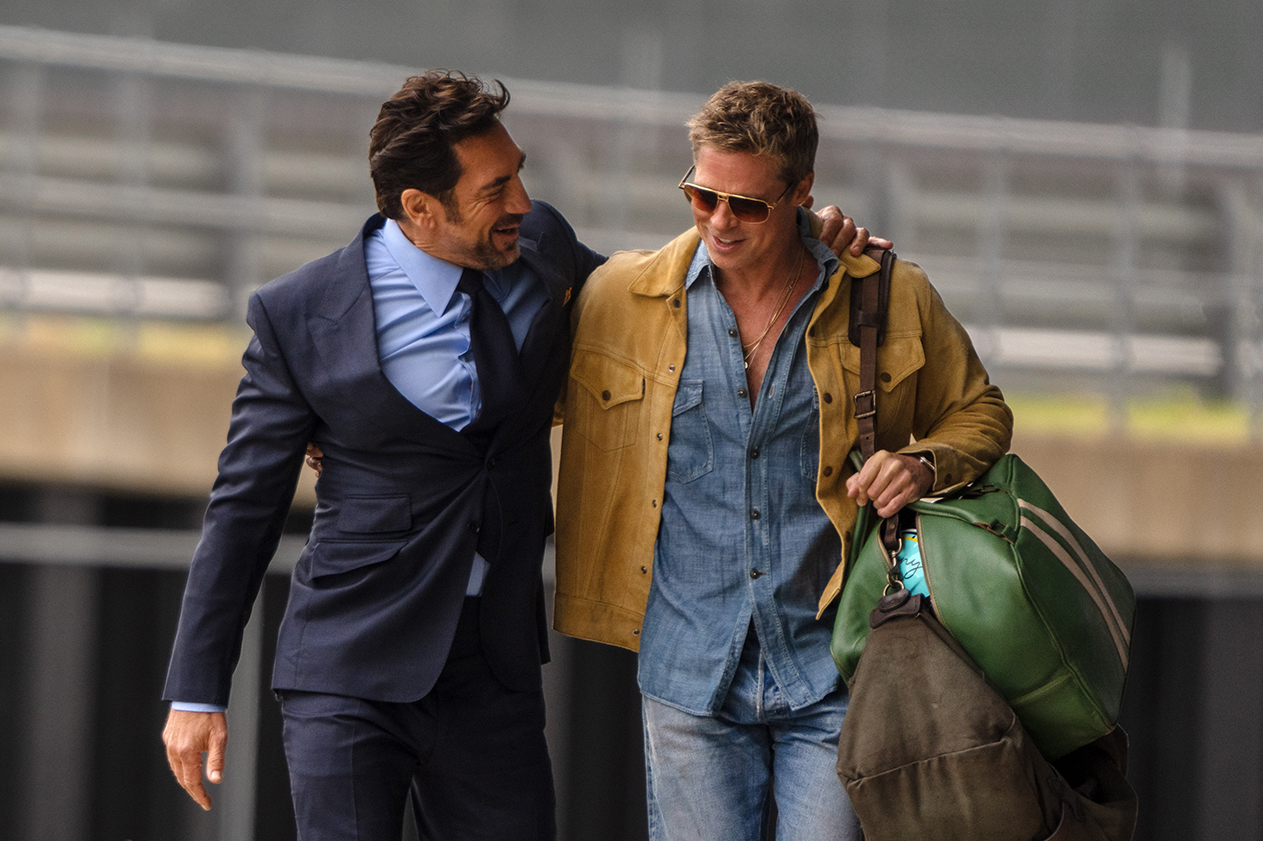David Leitch’s new action movie Bullet Train is noisy, bloody, jokey, highly derivative and, in its plot machinations, positively Delphic. It has the character of a cinematic testosterone injection. Yet, in the Year of Our Lord 2022, when American mass media has been overtaken by a spirit of androgynous wokeness, this unabashedly manly flick works more like a palette cleanser.
Based on the novel Maria Beetle by Japanese author Kotaro Isaka, Bullet Train stars Brad Pitt as an American assassin living in Japan. As the picture opens, the executioner has a run of bad luck and wants to get out of the whole shady business. But Pitt’s handler (Sandra Bullock — or the calm, firm voice of Sandra Bullock, anyway) gives him a call, assigns him the codename “Ladybug” and asks him to pinch-hit for a colleague. Bullock tells Ladybug that he’ll make fast work of the job, a throwaway mission wherein he’ll swipe a steel briefcase from a sixteen-car bullet train careening across the island nation. Ladybug, whose longish blond hair and bucket hat seem to suggest he’s game for just about anything, consents to this latest, last mission.
Here we must pause to reflect on the usefulness of trains in cinema. From Alfred Hitchcock’s The Lady Vanishes to Richard Fleischer’s The Narrow Margin to Andrei Konchalovsky’s Runaway Train, the railways have proven to be a perfect backdrop for screen thrills: book your hero a ticket, throw a few bad guys on board, and give them no place to go.
In Bullet Train, Ladybug finds his purportedly straightforward mission complicated by the presence by a bevy of heavies, including multiple fellow assassins with equally novel nicknames: the purported twins Tangerine (Aaron Taylor-Johnson) and Lemon (Brian Tyree Henry), the Prince (Joey King), and the Wolf (played by the rapper known professionally as “Bad Bunny”). Each has an interest in the same steel briefcase, and each is prepared to kill the others to grab a hold of it.
For a spell, the ensuing confusion — where is the briefcase? who wants it? who has it? — makes the movie resemble nothing so much as an ultra-violent version of Peter Bogdanovich’s great G-rated screwball comedy What’s Up, Doc?, in which multiple plaid overnight cases escape the grips of Ryan O’Neal and Barbra Streisand.
But this zippy, Agatha Christie-esque stretch of the film eventually gives way to a series of frenetic fight scenes. As dreamt up by Leitch — a former stunt coordinator and performer of some note — the fights take place in cramped spaces aboard the bullet train, and the participants’ fists, knives and various other instruments of pain are as likely to strike plastic tables and dinner carts as they are each other. A water bottle — the sort we tote around on public transportation — plays an outsized role.
Here’s a rail-based swashbuckler that works with what it has. Glimpsing out the windows as the train whizzes along, one discovers a neon fantasia of modern urban Japan. Flashbacks interrupt things occasionally, settling a dispute by Tangerine and Lemon over how many people they’ve killed in their careers, or showing the reason for the enmity between the Wolf and Ladybug.
There’s no time for kneeling to in-vogue progressive orthodoxies. “I thought they bowed here,” micro-aggresses Ladybug after encountering an unfriendly Japanese official. Throughout, guns are brandished freely and joyfully. The female assassin — the Prince — is shown to be more merciless than her companionable male counterparts, including the Thomas the Tank Engine-adoring Lemon. So much for “toxic masculinity.” It’s an obvious parody when Ladybug, who has the nonchalant sensitivity of a Jeffrey Lebowski, contemplates the therapeutic benefits of keeping a diary after engaging in multiple kills.
One’s emotional investment in the film’s increasingly hectic plot — and, once the bullet train goes seriously off-course, its increasingly unbelievable action — is next to nil, but we’re happy to ride along nonetheless, to an escape from the ubiquitous platitudes and clichés of modern culture. Perhaps the larger lesson here is that an action movie can be good or woke, but not both at the same time.
This article was originally published in The Spectator’s October 2022 World edition.

























